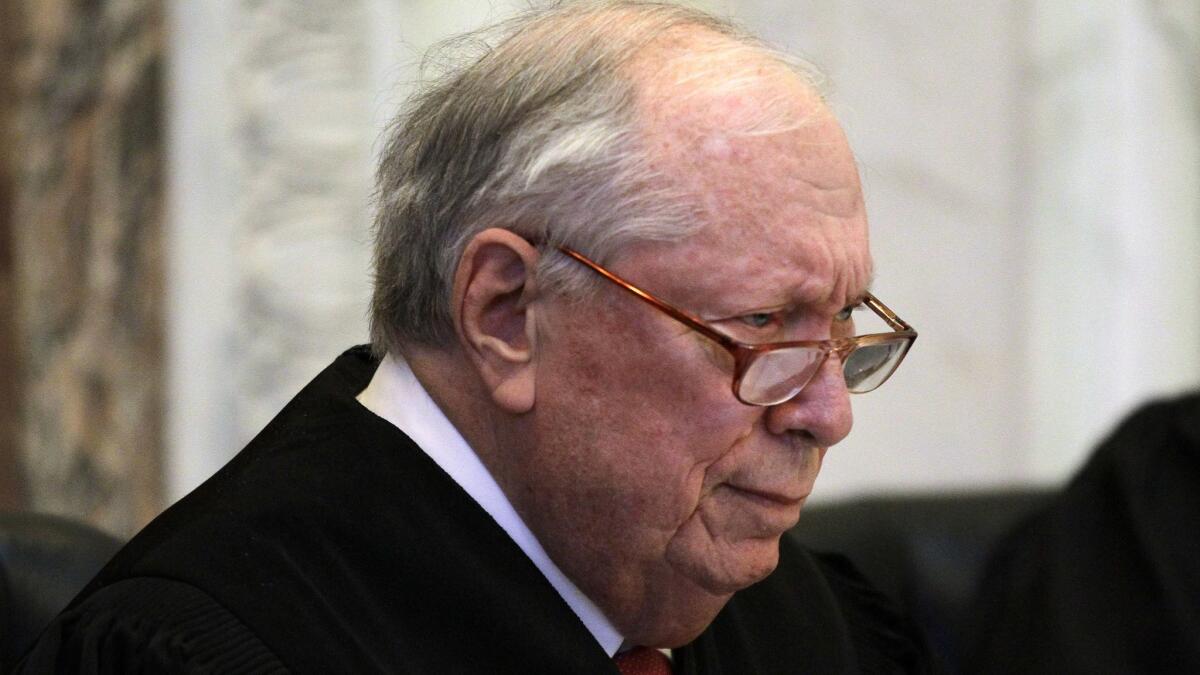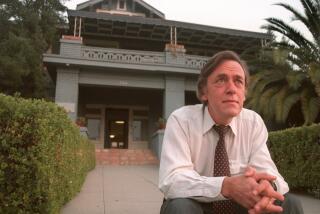Supreme Court overturns 9th Circuit equal-pay decision because of judge’s death

The Supreme Court on Monday overturned a U.S. 9th Circuit Court of Appeals decision on equal pay because Judge Stephen Reinhardt from Los Angeles died 11 days before the ruling was announced.
“Federal judges are appointed for life, not for eternity,” the high court said in a brief, unsigned opinion.
During his long career, Reinhardt was a liberal leader of the 9th Circuit and voiced a certain pride in being reversed often by the more conservative Supreme Court.
On April 9, the 9th Circuit, based in San Francisco, issued an opinion in a Fresno school case that was written by Reinhardt and spoke for a 6-5 majority.
The opinion upheld an Equal Pay Act claim brought by Aileen Rizo, who alleged she was paid less than male colleagues because her starting salary was based unfairly on her pay level in a previous job. Reinhardt said the 1963 law was intended to eliminate pay discrimination against women. It would be “inconceivable,” he wrote, that the law would permit “disparities that Congress declared are not only related to sex but caused by sex.”
But Reinhardt died March 29 when the case was still pending.
In a footnote issued with the ruling, the 9th Circuit said: “Prior to his death, Judge Reinhardt fully participated in this case and authored this opinion. The majority opinion and all concurrences were final, and voting was completed by the en banc prior to his death.”
But lawyers for Jim Yovino, Fresno school superintendent, appealed. They questioned whether the 9th Circuit was right to bar employers from considering a job applicant’s prior earnings when setting their salary. They also questioned whether a deceased judge can cast the deciding vote in an appellate decision.
On Monday, the justices set aside the 9th Circuit’s ruling based on Reinhardt’s role.
In Yovino vs. Rizo, the court said, the 9th Circuit had not explained how the April 9 decision could be a “majority opinion” since it “was not endorsed by a majority of the living judges at the time of issuance.”
The justices had a similar recent experience. In mid-February 2016, Justice Antonin Scalia died unexpectedly. He had cast votes in a series of cases in which the opinion was still pending at the time of death. In several cases, the high court announced it was split 4-4 and could not issue a ruling.
Monday’s ruling makes clear that the votes of deceased judges cannot be used to decide cases.
Other than in this case, the high court’s opinion said, “we are aware of no cases in which a court of appeals panel has purported to issue a binding decision that was joined at the time of release by less than a quorum of the judges who were alive at the time.” Issuing a ruling written by Judge Reinhardt after his death “effectively allowed a deceased judge to exercise the judicial power of the United States after this death. But federal judges are appointed for life, not for eternity.”
The outcome leaves unresolved the question of whether the Equal Pay Act forbids employers from paying new employees based on his or her previous salary. Rizo’s case will return to the 9th Circuit, which could convene a new en banc court to decide the issue, with another appellate judge taking Reinhardt’s place.
More stories from David G. Savage »
More to Read
Get the L.A. Times Politics newsletter
Deeply reported insights into legislation, politics and policy from Sacramento, Washington and beyond. In your inbox three times per week.
You may occasionally receive promotional content from the Los Angeles Times.







